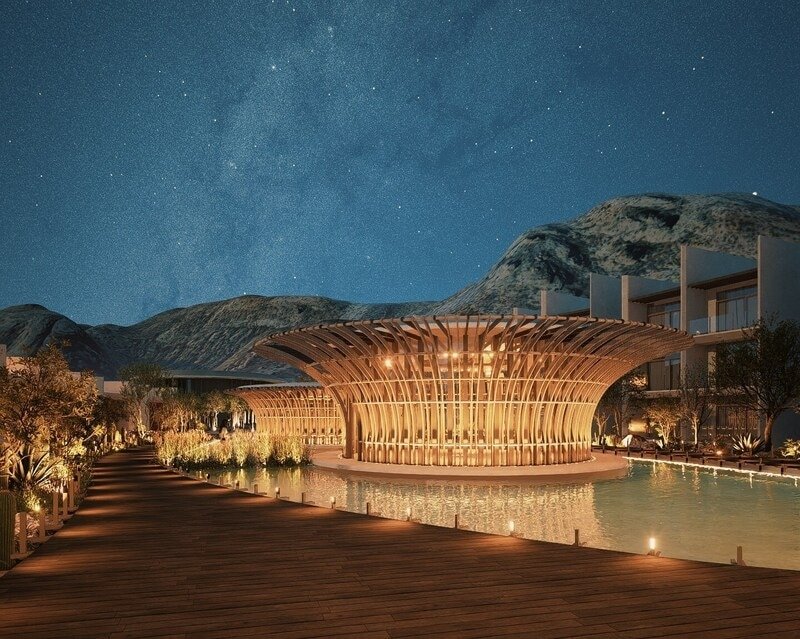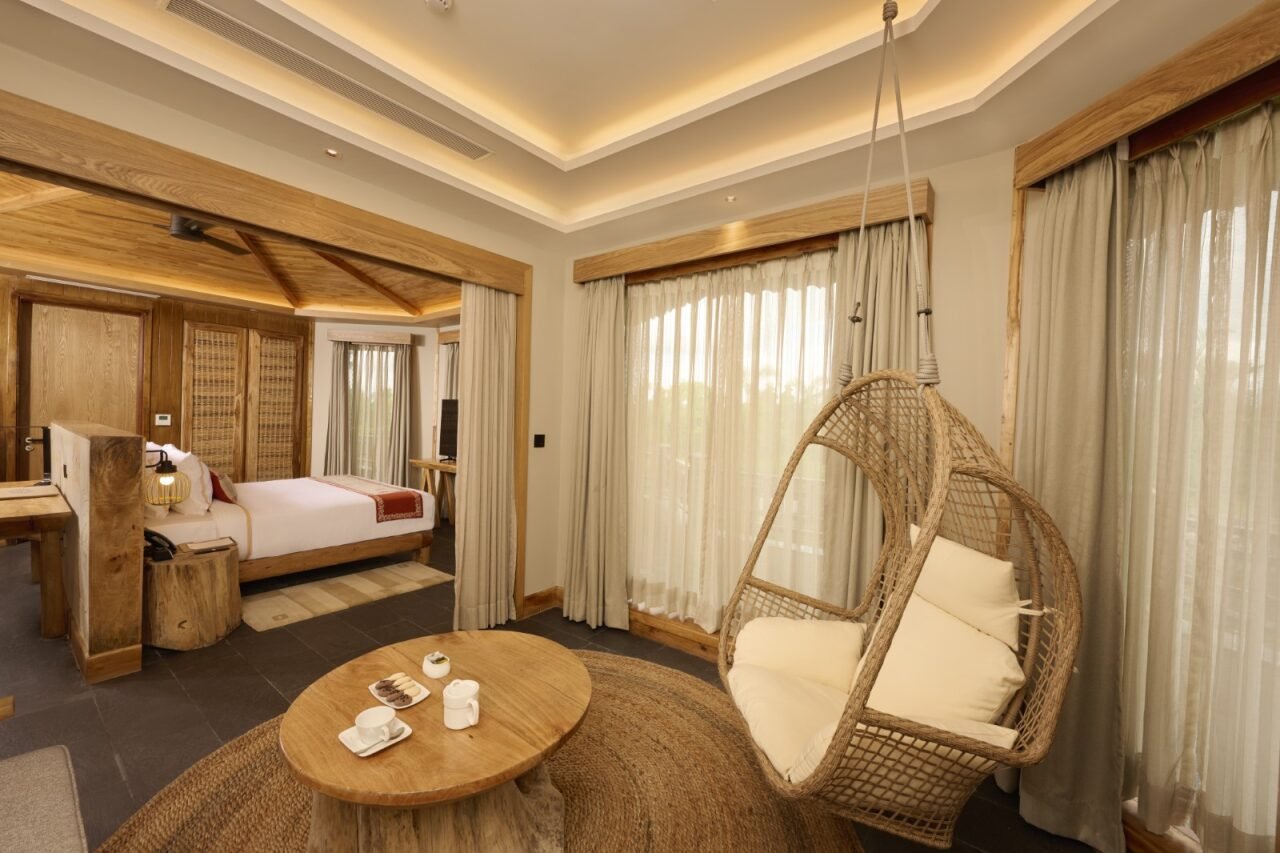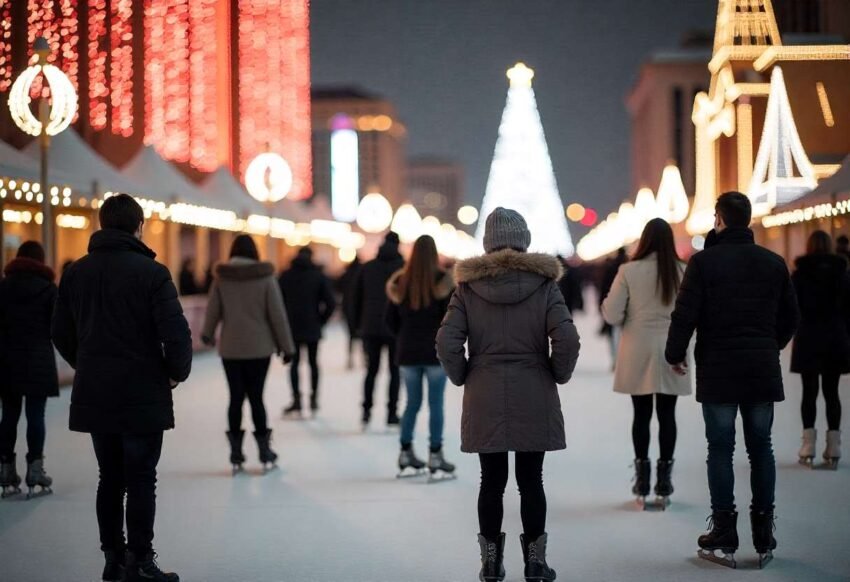Travel Trends
Trump administration hijacks Jet2holidays' advert in memes mocking deportee flights
Travel Trends
Top 35 Travel Trends in August

At the forefront of digital innovation, Mindtrip debuts a new AI-powered mobile app, offering real-time, hyper-personalized travel guidance that adapts to users on the go. United Airlines also upgraded its app with a connecting flight-centric feature, simplifying complicated itineraries for smoother travel. Meanwhile, the luxury sector is expanding with a renewed focus on wellbeing. Marriott International’s Luxury Group launched its ‘Luxury Wellbeing Series 2025’ across top Asian destinations, while Loreto’s Mailena, debuting in late summer 2026, introduces a restorative adults-only retreat to Mexico’s Baja Peninsula.
Nostalgia is trending, too as ‘Pan Am Journeys’ by Private Air, under license from the iconic Pan American World Airways, offers retro-inspired, private air travel experiences. Similarly, Carl Friedrik’s ‘Carry-on X Core Collection’ nods to mid-century aviation aesthetics with sleek, functional design. On the water, Viking makes waves by entering the Indian river cruise market with the introduction of the ‘Viking Brahmaputra,’ bringing high-end cruising to the subcontinent. Nox, looking to the future of European rail travel, announces plans for 2027 overnight trains with private, comfort-first cabins—reshaping the night train experience.
On the lifestyle side, Four Seasons adds flair with its ‘Resort Pajamas Collection,’ while Groupe GM and Hei Poa debut a soothing, protective sun care hotel amenity line. Additionally, ‘The Cayman Club’ by Cayman Jack provides travelers with a sense of calm amid travel disruptions, and ‘Camp Unwritten’ by World of Hyatt and Reese’s Book Club invites guests to glamp with books, nature, and luxury.
Altogether, August’s travel trends reflect a traveler mindset increasingly shaped by individuality, relaxation, and meaningful escape—one that seeks not just destinations, but immersive, personal journeys.
Travel Trends
Nepal’s Royal Tulip opens Doors

In a major push to elevate Nepal’s hospitality landscape, Sarovar Hotels—part of the Louvre Hotels Group—has launched Royal Tulip Chitwan, the brand’s premium entry into the country. Situated at the edge of Chitwan National Park, a UNESCO World Heritage Site, the new resort seamlessly blends luxury, nature, and Nepali culture. The opening marks the debut of the Royal Tulip brand in Nepal and signals growing confidence in the country’s tourism potential.
Developed by KTM Hospitality (a KTM Group Holdings company), the resort spans over 4 acres and offers 65 upscale rooms and villas. Accommodation options include private Pool Villas, serene Water Villas, and unique Machan-style stays that elevate the guest experience. With a focus on nature-inspired design and top-tier comfort, the resort is positioned as an ideal destination for luxury travellers, wildlife enthusiasts, and honeymooners alike.
Royal Tulip Chitwan goes beyond just accommodation, offering world-class facilities like a luxury spa, fitness centre, swimming pool, and multiple gourmet dining options. Guests can enjoy meals at Majhighar, Forest Flame, the revolving deck Machan, or unwind at the stylish Tanavi Sports Bar. The emphasis is on immersive experiences rooted in local culture and cuisine, combined with global service standards.
Ajay K. Bakaya, Chairman of Sarovar Hotels, emphasised the strategic significance of this launch, noting Nepal’s increasing appeal among Indian and international tourists. He stated that Royal Tulip Chitwan is designed to offer a luxurious yet culturally authentic retreat. Rameshwar Shah of KTM Hospitality echoed this sentiment, highlighting the resort’s role in promoting Chitwan as a luxury eco-tourism hotspot.
With this debut, Louvre Hotels Group is expanding its South Asian footprint by targeting high-potential, experience-driven markets. Royal Tulip Chitwan is expected to become a landmark for leisure travel in Nepal, attracting guests seeking a tranquil yet luxurious escape surrounded by nature and culture.
Travel Trends
Las Vegas Sees Fewer Visitors Amid Changing Travel Trends

Saturday, August 2, 2025
Las Vegas, celebrated as the entertainment capital of the world, is grappling with a decline in tourism. Locals have expressed concern, with many noting that the city’s iconic casinos are now quiet compared to the bustling atmosphere. The shift comes amidst a variety of factors, including changing political climates and evolving consumer behavior and broader travel trends that have caused a dramatic drop in tourism.
Tourism Decline: What’s Behind the Fall in Visitors
The sharp decline in tourism in Las Vegas has been felt deeply in the local economy, which relies heavily on tourists flocking to its casinos, resorts and entertainment venues. The Strip, once packed with eager tourists, is now seeing fewer visitors, especially in some of the larger, more well-known casinos. This downturn has led to concerns among business owners and workers who rely on the constant influx of tourists for their livelihoods. In particular, many Las Vegas locals have pointed out that the once-crowded casinos are now far emptier than before, with fewer high rollers and international tourists gambling at the tables.
America: How Tourism Is Affected
Las Vegas, being a major destination for international travelers, has felt the effects of these policies. Many international visitors, who would otherwise frequent Las Vegas for its world-class casinos, shows, and attractions, have chosen alternative destinations in Europe or Asia, where travel policies are more relaxed. Moreover, the rhetoric surrounding immigration and the portrayal of the U.S. as less welcoming to foreigners has led to a significant decrease in the number of tourists coming from overseas.
Changing Consumer Habits
In addition to this, changing consumer habits are also contributing to the decline in Las Vegas tourism. Furthermore, the rising popularity of staycations has impacted Las Vegas’ tourism industry. More Americans are choosing to take vacations within their own country and often prefer to visit nearby destinations rather than making the long journey to Las Vegas. Cities like Los Angeles, San Francisco, and Phoenix have become increasingly popular alternatives, providing travelers with the same level of entertainment and relaxation without the associated travel costs or the crowded experience Las Vegas now offers.This shift in consumer behavior, combined with economic uncertainties and the high cost of travel, has caused many potential visitors to look elsewhere for their leisure time.
Adapting to the New Reality: Efforts to Revitalize Las Vegas Tourism
Las Vegas is working tirelessly to adapt to these changing dynamics and breathe new life into its tourism industry. Local businesses, tourism boards and city officials are all focusing on diversifying the offerings that have traditionally centered around casinos and nightlife.
Las Vegas is embracing new tourist attractions, such as immersive art exhibits, family-friendly entertainment, and wellness retreats. Additionally, the city is hosting an increasing number of non-gambling events, such as conferences, sports events, and concerts, to attract a new wave of visitors who may not be interested in casinos but are still drawn to Las Vegas’ entertainment options.
Moreover, Las Vegas is actively marketing itself as a destination for millennials and Gen Z, who are more interested in experiences like live concerts, celebrity chef dining, and unique cultural events rather than traditional gambling. By promoting a more diverse set of attractions and rebranding itself as a multifaceted vacation destination, Las Vegas is hoping to regain its appeal among younger travelers.
The Future of Las Vegas Tourism: What Lies Ahead?
While the challenges are significant, there is hope for the future of Las Vegas tourism. With its constant reinvention and ability to adapt to new trends, Las Vegas has the potential to recover from the current slump. However, it will require a concerted effort to regain the confidence of international travelers.
As it adjusts to the effects of Trump’s policies, shifting consumer behaviors and the global tourism landscape, the city will continue to evolve. Las Vegas has long been known for its resilience, and if the city’s history is any guide, it will likely find new ways to draw in tourists and bring back the vibrancy that has made it the world’s entertainment capital for decades.
Changing Landscape for Las Vegas Tourism
Las Vegas has long been synonymous with glamour, entertainment and excitement. However the recent decline in tourism has left locals and business owners worried about the future of the city’s economy. While the decline in visitation is concerning, there are signs of hope as the city adapts to a new era. Through innovation, reinvention and a focus on attracting diverse visitors, Las Vegas will likely remain a global tourism destination but it may look a little different than it once did.
-

 Brand Stories2 weeks ago
Brand Stories2 weeks agoBloom Hotels: A Modern Vision of Hospitality Redefining Travel
-

 Brand Stories1 week ago
Brand Stories1 week agoCheQin.ai sets a new standard for hotel booking with its AI capabilities: empowering travellers to bargain, choose the best, and book with clarity.
-

 Destinations & Things To Do2 weeks ago
Destinations & Things To Do2 weeks agoUntouched Destinations: Stunning Hidden Gems You Must Visit
-

 Destinations & Things To Do1 week ago
Destinations & Things To Do1 week agoThis Hidden Beach in India Glows at Night-But Only in One Secret Season
-

 AI in Travel2 weeks ago
AI in Travel2 weeks agoAI Travel Revolution: Must-Have Guide to the Best Experience
-

 Brand Stories4 weeks ago
Brand Stories4 weeks agoVoice AI Startup ElevenLabs Plans to Add Hubs Around the World
-

 Brand Stories3 weeks ago
Brand Stories3 weeks agoHow Elon Musk’s rogue Grok chatbot became a cautionary AI tale
-

 Asia Travel Pulse4 weeks ago
Asia Travel Pulse4 weeks agoLooking For Adventure In Asia? Here Are 7 Epic Destinations You Need To Experience At Least Once – Zee News
-

 AI in Travel4 weeks ago
AI in Travel4 weeks ago‘Will AI take my job?’ A trip to a Beijing fortune-telling bar to see what lies ahead | China
-

 Brand Stories4 weeks ago
Brand Stories4 weeks agoChatGPT — the last of the great romantics



You must be logged in to post a comment Login